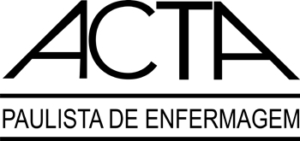By Solange Diccini, (associate professor) Escola Paulista de Enfermagem of the Universidade Federal de São Paulo, São Paulo, SP, Brazil
Ellen Maria Pires Siqueira and Solange Diccini, researchers of the Group for Studies and Investigation on Nursing in Neuroscience and Pain (Escola Paulista de Enfermagem, EPE; Universidade Federal de São Paulo, UNIFESP), evaluated and compared the systemic and neurological complications and mortality between patients submitted to elective neurosurgical or urgency/emergency procedures. This study was conducted in a large-size university hospital in the city of São Paulo, SP, Brazil. The results and conclusions of this scientific study were published in Acta Paulista de Enfermagem (Vol. 30, N. 1, Jan. 2017).
Neurological complications in the postoperative period of elective skull surgeries include decreased level of consciousness, cerebral vasospasms, refractory seizures, reoperation, hemiparesis and intraparenchymal hematoma. In urgency/emergency surgeries are also reported complications such as intracranial hypertension, motor deficits, recurrent subdural hematoma, intraparenchymal hemorrhage, vasospasms and seizures. Systemic complications in the postoperative period of elective neurosurgeries include nausea and vomiting, hypotension, respiratory distress and surgical site infection. For urgency/emergency surgeries, pain and nosocomial infections are also observed. The overall mortality rate has been reported to be only 1% after elective neurosurgery, as compared to 29% after urgency/emergency neurosurgery. Postoperative complications has been increased the risk of death in both groups (BUI, et al., 2011; IBAÑEZ, et al., 2014; ROLSTON, et al., 2014).
A total of 202 patients were included in the study, divided into two neurosurgical groups: elective (n=127) and urgency/emergency (n=75) surgeries. In both groups, the systemic [elective (98.3%) and urgency/emergency (98.5%) surgeries; p>0.99] and neurological [elective (45.5%) and urgency/emergency (52.9%) surgeries; p=0.402] complications were similar. The patients in the elective surgery group presented more pain (p<0.001) and vomiting (p=0.010), while the patients of the urgency/emergency surgery group presented more intracranial hypertension (p=0.001), anisocoria (p=0.002), cerebral vasospasm (p=0.043), absence of pupillary photoreaction (p=0.006), and reoperation (p=0.046). Mortality was different in patients of the elective (5.5%) and urgency/emergency (26.7%, p<0.001) surgery groups.
The systemic and neurological complications were present in both postoperative period of elective neurosurgeries and surgeries performed in urgency/emergency situations. Knowledge of type and frequency of these complications can trigger preventive or early-identification measures in the postoperative period, with decrease in hospital morbidity and mortality.
References
BUI, J.Q., et al. Is postoperative intensive care unit admission a prerequisite for elective craniotomy? J Neurosurg. 2011, vol. 115, no. 6, pp. 1236-1241.
IBAÑEZ, F.A.L., et al. A new classification of complications in neurosurgery. World Neurosurg. 2011, vol. 75, no. 5/6, pp. 709-715.
ROLSTON, J.D., et al. Frequency and predictors of complications in neurological surgery: national trends from 2006 to 2011. J Neurosurg. 2014, vol. 120, no. 3, pp. 736-745.
To read the article, access it:
SIQUEIRA, E.M.P. and DICCINI, S. Complicações pós-operatórias em neurocirurgia eletiva e não eletiva. Acta paul. enferm. [online] 2017, vol. 30, no. 1, pp. 101-108 [viewed 17 May 2017]. DOI: 10.1590/1982-0194201700015. Available from: http://ref.scielo.org/vsdz2w
External link
Acta Paulista de Enfermagem – APE: <http://www.scielo.br/ape>
Como citar este post [ISO 690/2010]:


















Recent Comments